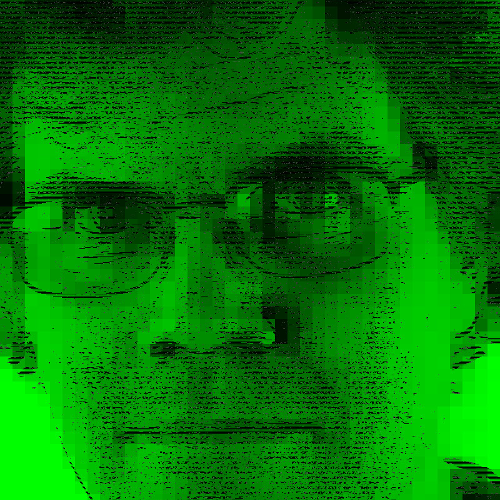It's a survey of puzzles: word puzzles, logic puzzles, physical puzzles, jigsaw—you get the idea. I'm not really in the target demographic for a survey; I already knew most of this stuff from, y'know, participating in puzzle events for the past not-quite-twenty years. Sure, the author has a unique set of opinions; but I've encountered most of those opinions piecemeal while talking with other puzzle nerds for the past not-quite-twenty years. So why did I read this targeted-elsewhere book? OK, remember back in 2020 I helped run the MIT Mystery Hunt, including a pancake Pictionary event, and one of the participants had a TV crew with him? That participant was the book's author, A.J. Jacobs. I don't know a ton about him, but apparently he roped some TV outfit into covering some of his more eye-catching book research. It turns out he's kind of a big deal. You remember some years back, some guy spent a year trying to follow all the rules of the bible? Same guy. So: kinda famous.
I'm quite grateful that he attended the 2020 MIT Mystery Hunt. He didn't say a ton about it; that's appropriate, since he was aiming for a survey of the whole world of puzzling and was writing a book carry-able without help from a forklift. Why am I grateful? Because he was willing to work on that puzzle that used surgery videos as puzzle data. A lot of folks couldn't bring themselves to look at that puzzle; I certainly couldn't. I remember making sure that its videos were hooked up correctly by peeking at them between my fingers… hoo boy. Jacobs was willing to work on that puzzle; and when he chose a sample MIT Mystery Hunt puzzle to include in his book, he chose "Bobcat" by the same author (but much less disturbing).
So the author dove in deep to the world of the MIT Mystery Hunt, participating, solving puzzles… and then wrote a little about it for this book. It kinda makes you wonder what ended up "on the cutting room floor." And that sums up what I thought about other sections of the book. He has a chapter about chess puzzles. Wow, he interviewed Garry Frickin' Kasparov for his chapter about chess problems… uhm, but while I bet it was an interesting conversation, not a lot of it made it into the book. (Or maybe most of the interview made it into the book except for the part where hypothetically Kasparov said "I have a bus to catch, I can give you five minutes"?) Uhm, it's cool that someone wants to write a breezy, readable survey of puzzling aimed at the layperson; it's cool that someone writing about chess problems talked to Kasparov; it's just kinda jarring that they're the same book, I guess?
I was mulling this over while talking with someone who recently read The Dawn of Everything, a book which compares how various cultures solved various problems historically. And that book is 700 pages, and it's a lot. And maybe it would have been a kindness to readers to pick one problem that various cultures solved various ways and write one much shorter book about that problem. Or maybe if there had been an editor who was willing to lay down the law and say "This book is all very well, but ⅔ of it has got to go." So, like, I get it that if this guy wants to write a book that appeals to his large existing audience, he's gotta keep it short, keep it breezy.
I guess I'm just so accustomed to mass-audience books being kinda sloppy, it's jarring to see something so rigorous and yet targeted to mass-audience.
